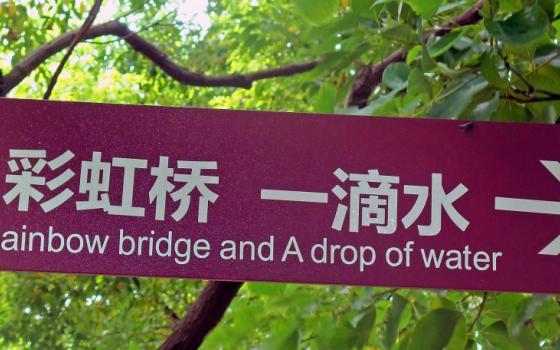Sister Nancy recently traveled to several cities in China and today's blog relates part of her experiences.
Our tour guides spoke excellent English. A couple had graduated from the university majoring in English with the intent to be a teacher or a diplomat. Instead, they became more interested in the hospitality industry and experienced the satisfaction of fluently speaking English to assist travelers to China.
One of the guides in particular had noteworthy English skills. She was just outstanding and always explained everything clearly in English only. She said, "I try very hard to keep my Chinese language prowess separate from my English language prowess. If you can't do that, you're guilty of speaking Chinglish."
There really is a term called "Chinglish." It occurs when English phrases are translated literally into Chinese but the outcome isn't what English speakers are expecting. Not only is this a problem for English-speaking natives to understand the meaning of a phrase on a sign, for example, but also it can make China seem foolish or uneducated.
For example, a sign over a fire extinguisher had the Chinese words and this English translation: "Hand Grenade." A public building sign indicating quiet and no spitting also had the Chinese words plus this English translation: "Please no conversation, no saliva." Santa Claus is "Christmas old man." The thanksgiving turkey is "fire chicken."
But there's also a certain charm to Chinglish. Consider this message on a sign in a park: "The grass smiles to you, please do not trample on it." Or this construction sign: "We herein construction, bring inconvenience to you, please understanding!"
Maybe that sentiment can carry us along instead of snobbishness that others aren't speaking English to suit me. Have I made the effort to learn someone else's language? "Please understanding."
[Nancy Linenkugel is a Sylvania Franciscan sister and chair of the department of Health Services Administration at Xavier University, Cincinnati.]

